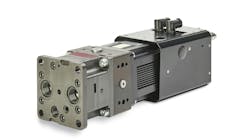Rockwell has set off another swirl of rumors about its future in general and that of its software and process automation interests in particular by announcing a major restructuring and a 3% cutback in staff across the board. The announcement came on top of the earlier revelation of the departure of Rockwell Software vice president and general manager Kevin Roach, which was followed a fortnight later by the news that process industry marketing manager Rick Dolezal had been “let go.” Both executives had prominent roles outside the company, Roach as a former chairman of MESA International and Dolezal as “the public face of Rockwell’s Process Systems User Group (PSUG),” as CONTROL’s Walt Boyes described him.
Rockwell says that the restructuring is “designed to better align resources with growth opportunities and reduce costs in light of current and anticipated market conditions.” It follows “a comprehensive analysis of the company’s cost structure” and is intended to generate cost savings of some $75 million in 2009, rising to $85 million in 2010. To that end, the company plans to take a pre-tax charge of some $50 million in the fourth quarter of the current financial year when it announces its quarterly and full year results in November.
According to chairman and CEO Keith Nosbusch, the actions are in line with the cost management approach outlined last July. “Although fourth quarter revenue is in line with expectations,” he said, “we believe it is prudent to take steps to address our cost structure while continuing to invest to maintain our competitive differentiation and further strengthen our global presence.” Rockwell found it necessary to issue what it described as ‘Third Quarter Guidance’, marking down its expectations of the full year, in June of this year.
Wielding the axe
The company says that the cut back in the workforce will focus primarily on sales, general and administrative functions. Industry observers and market analysts will be watching closely to see how high in the hierarchy the cuts go and to what extent sales and marketing bears the brunt. Rockwell is widely perceived to be both top heavy and over-provided with sales personnel, particularly for a company with such significant reliance on the distribution and integrator channel.
Opinion is equally divided as to the significance of Roach’s departure, with some observers suggesting that it signifies a pulling back from the commitment to developing an independent software business, while others say that he was simply offered a very well-paid position. That appointment is as executive vice president of the Wholesale Distribution group of Activant Solutions, a private-equity-funded developer of business management solutions for small and medium-sized retail and wholesale distribution businesses. It’s only the most recent of a number of surprise moves by Roach over the years since he joined GE Fanuc in 1998 as vice president of Cimplicity software. In 2002 he was widely credited with masterminding GE Fanuc’s acquisition of Intellution from Emerson and of Mountain Systems and the development the company’s manufacturing software strategy, only to jump ship to Rockwell two years later to become vice president of Rockwell Software.
Rockwell sources have sought to reassure customers of its continuing commitment to its process automation business, described as its number one commitment. Meanwhile Steve Eisenbrown, Rockwell Automation Architecture & Software senior vice president said that it had already started looking for a replacement for Roach. “We are committed to identifying a successor who will stay the course in terms of the current vision and strategy,” he said. “The Information Solutions business will continue to be a key part of our growth strategy.”
None of which has, of course, stopped the rumors that Rockwell is being groomed for sale, in whole or in part, or that ABB, in particular, is preparing to acquire either Rockwell or possibly Honeywell Process Solutions. With all of the world’s major economies now facing some degree of downturn, however, it may not be long before Rockwell’s measures are seen as no more than a prudent response to developing market realities.



